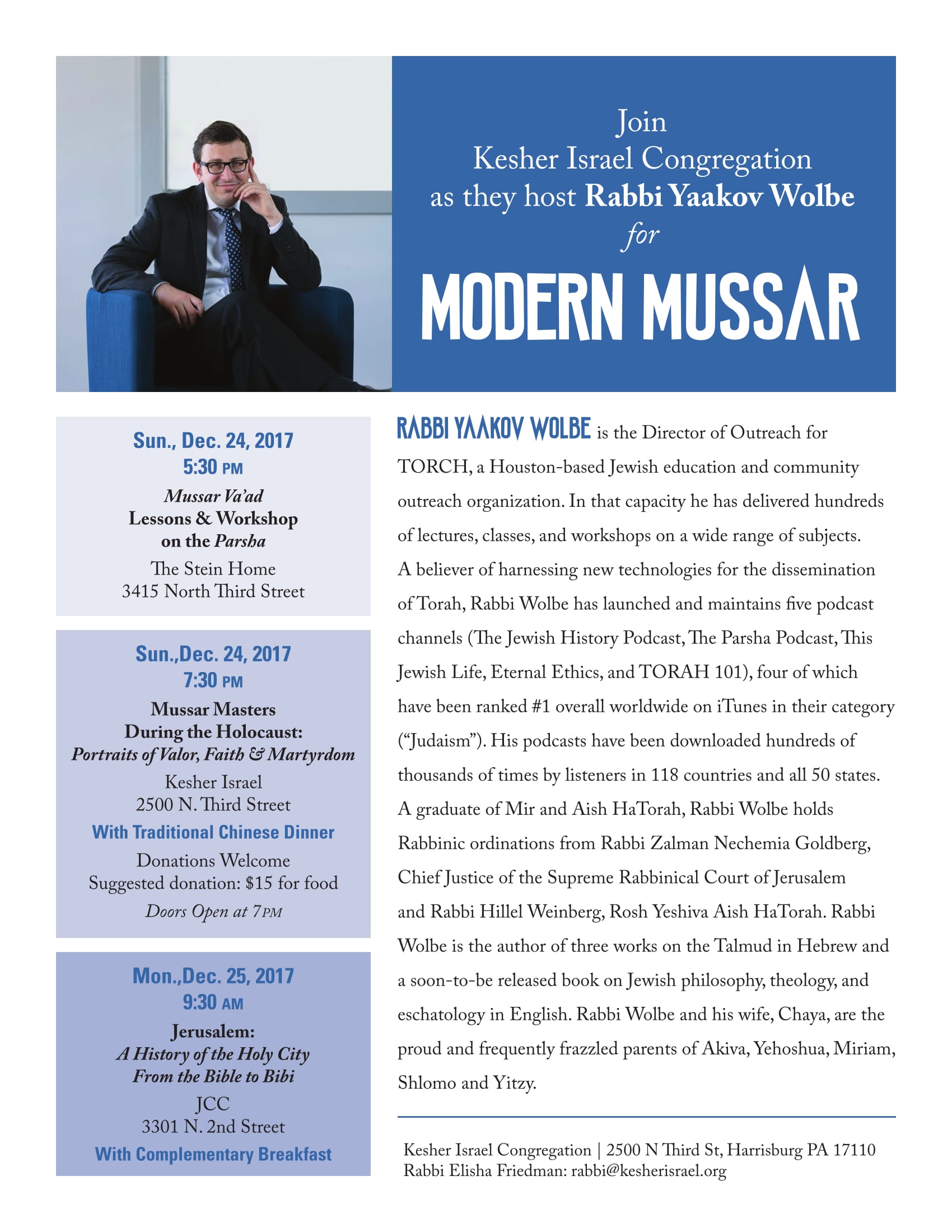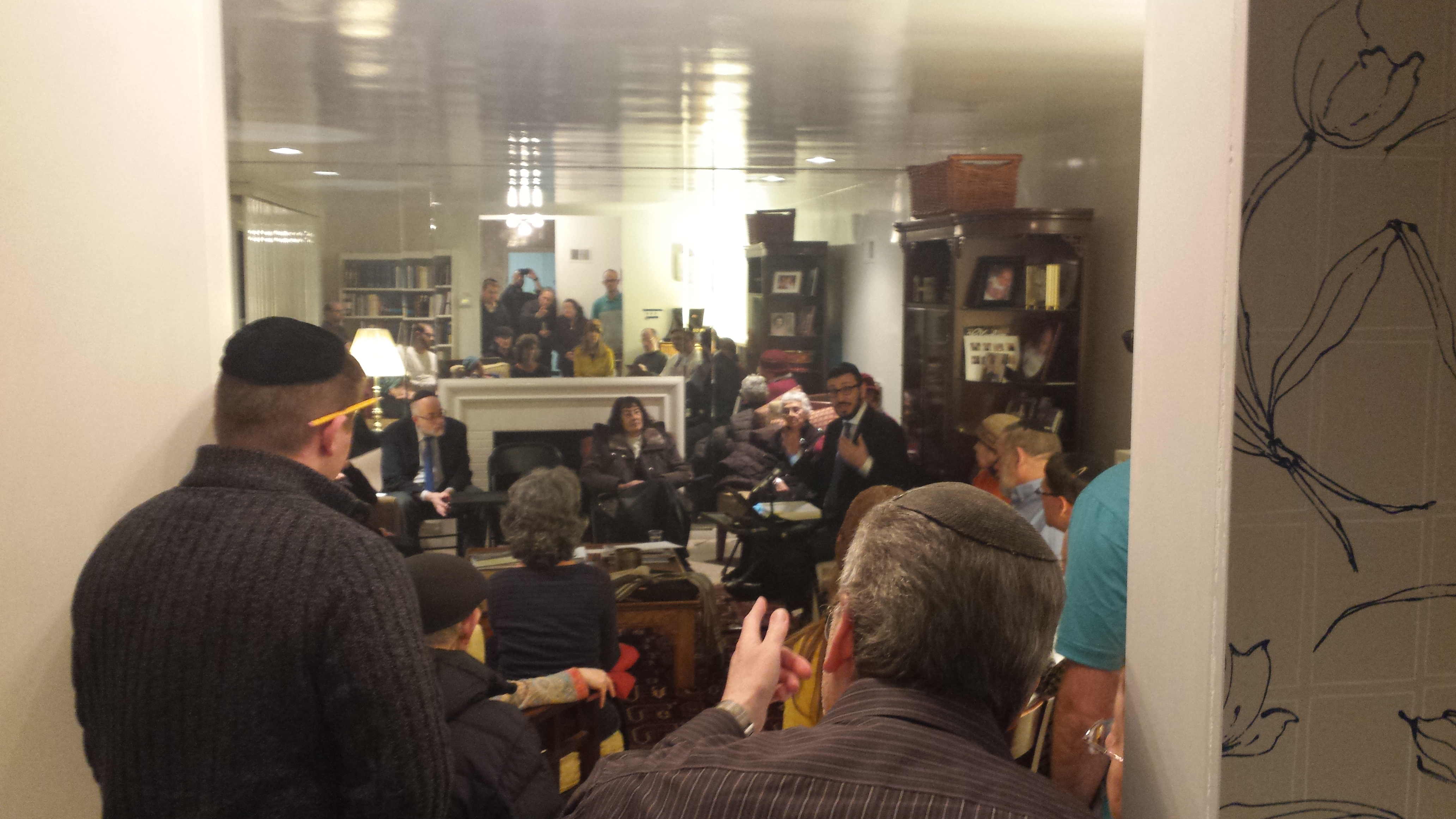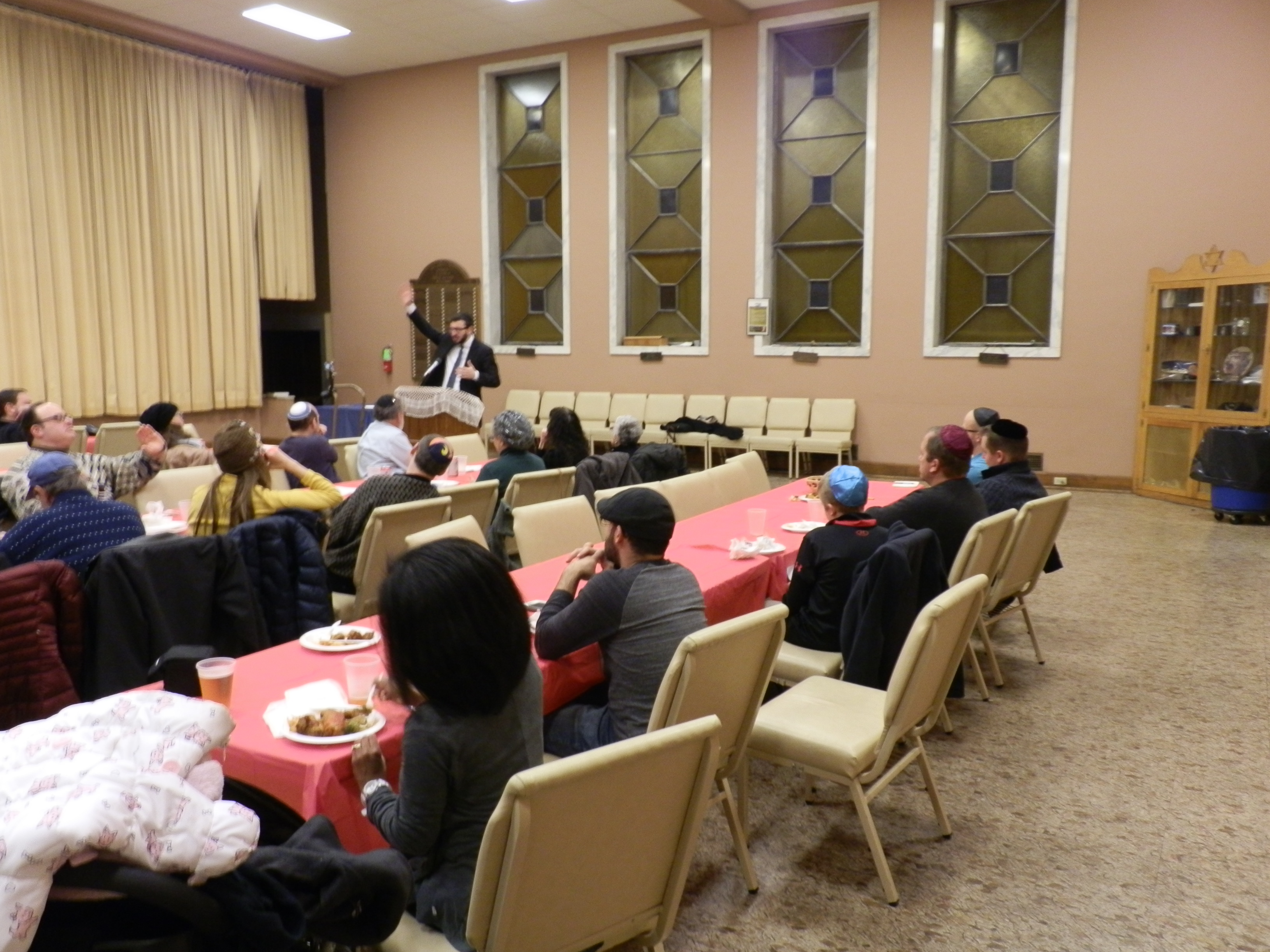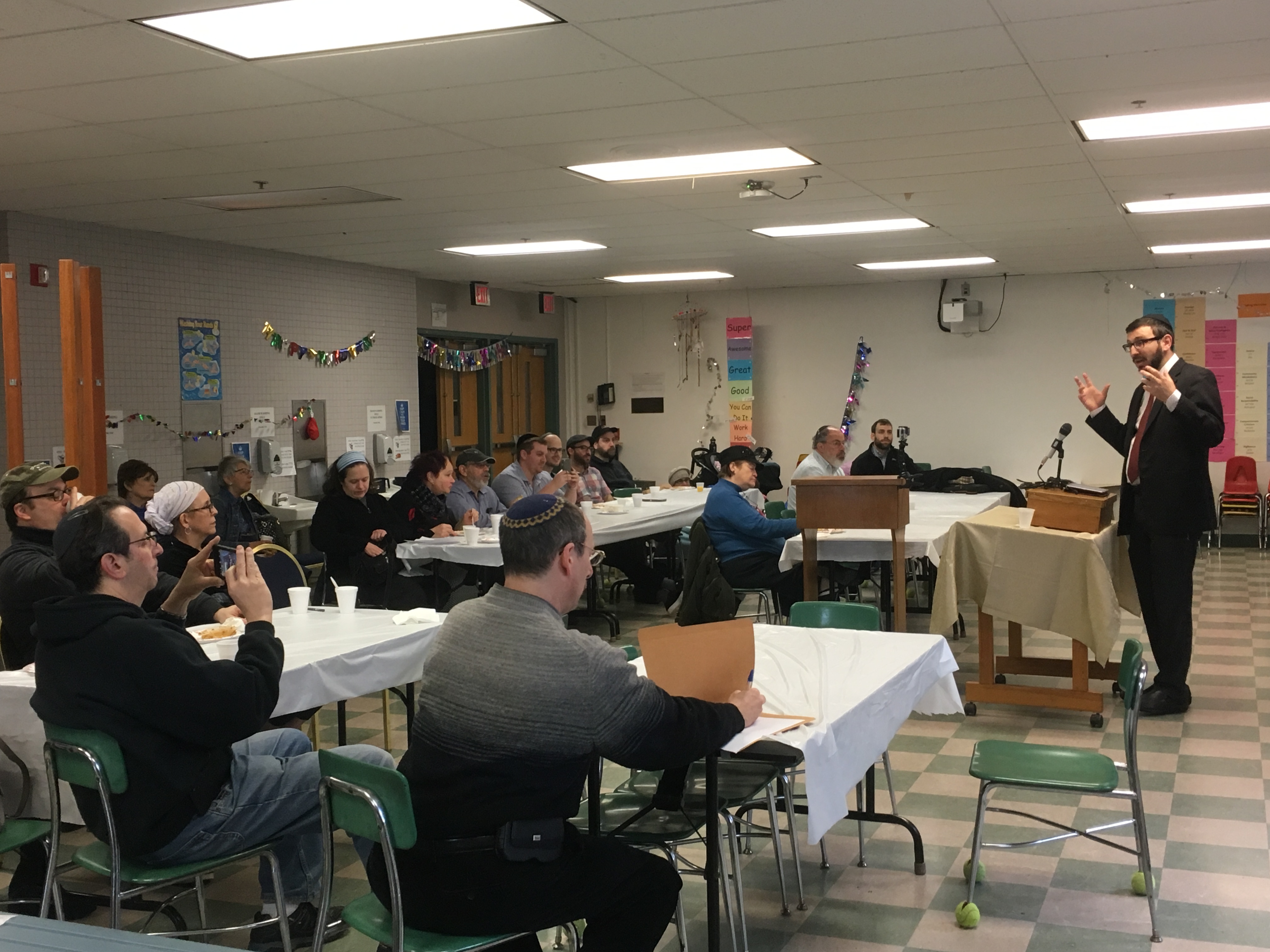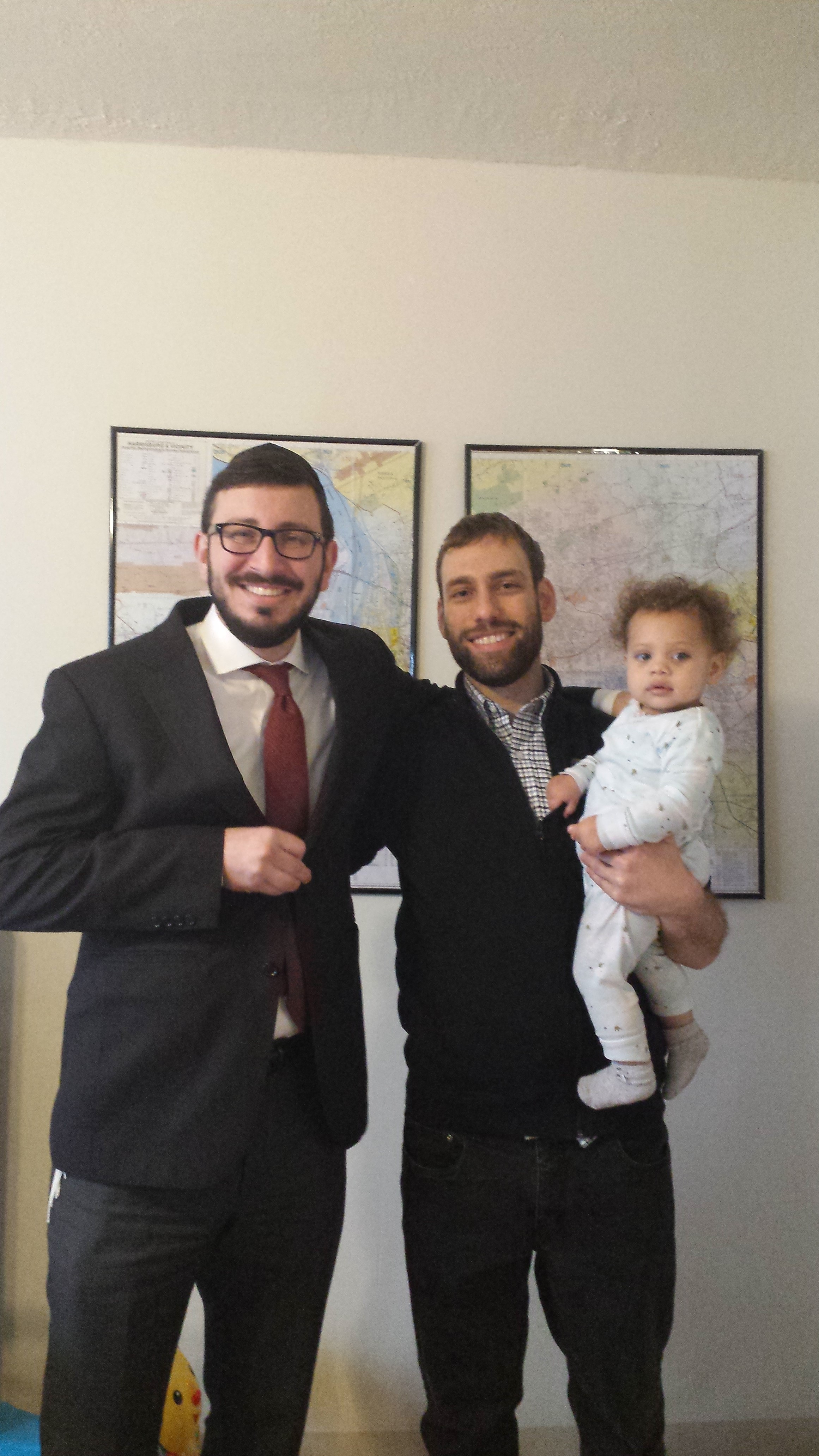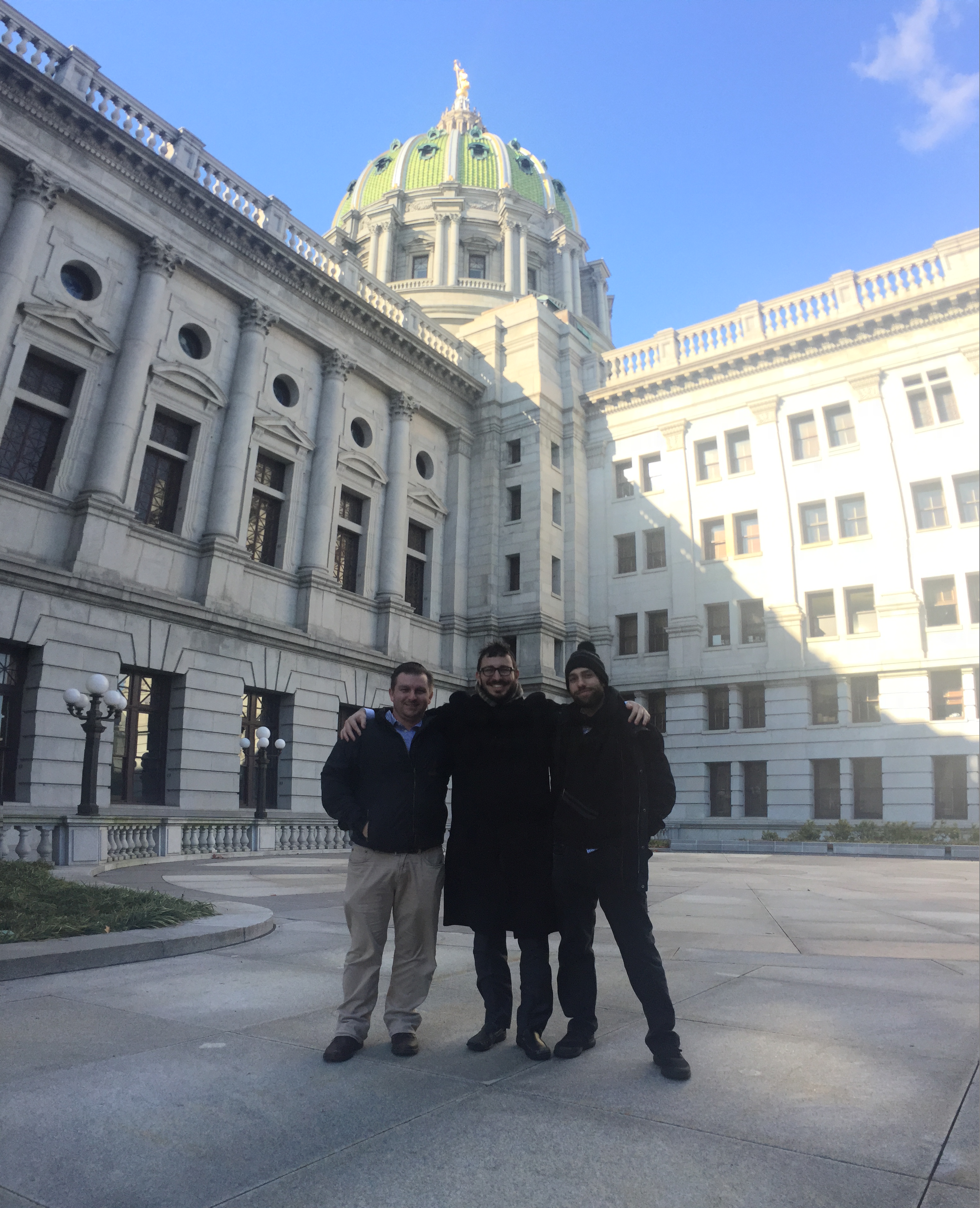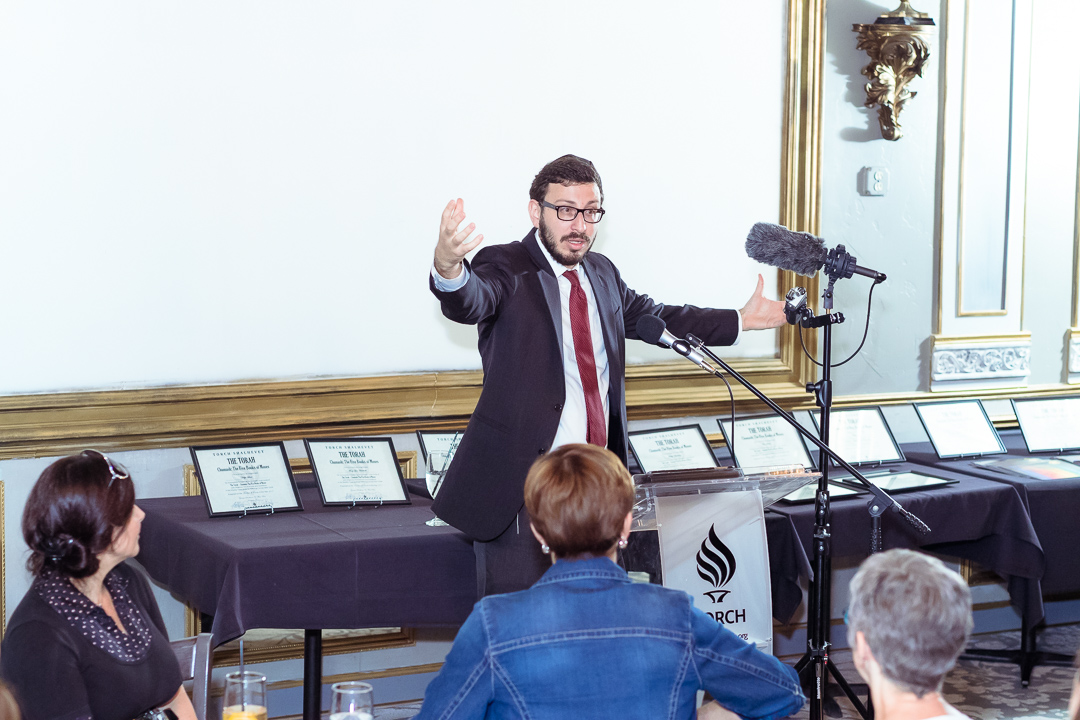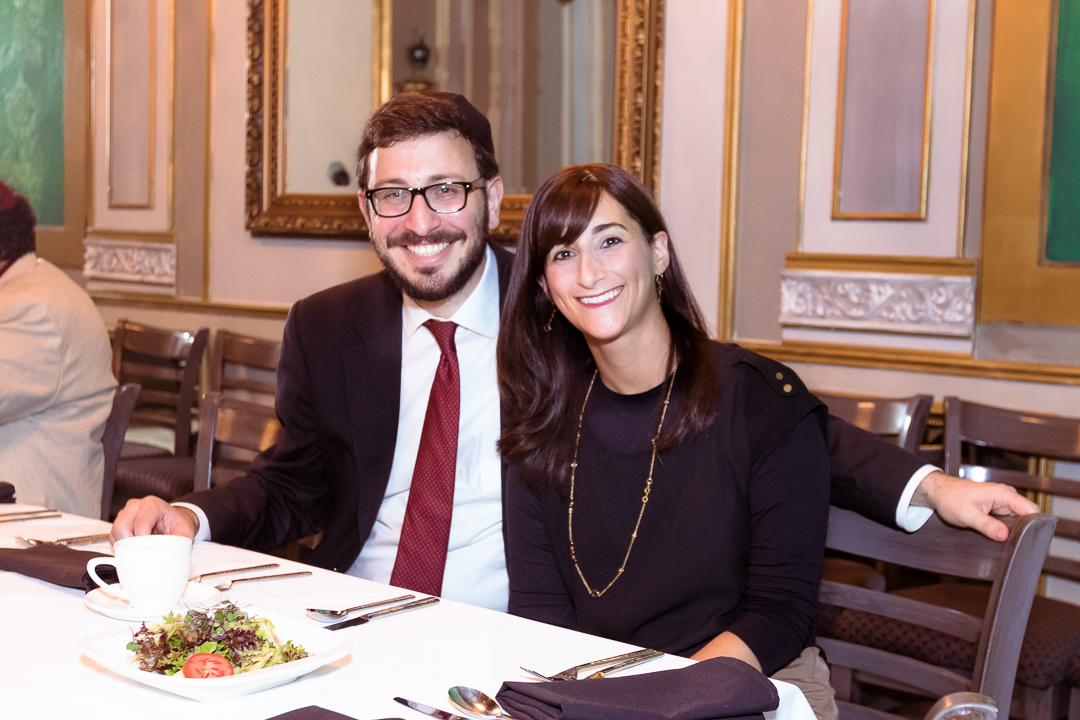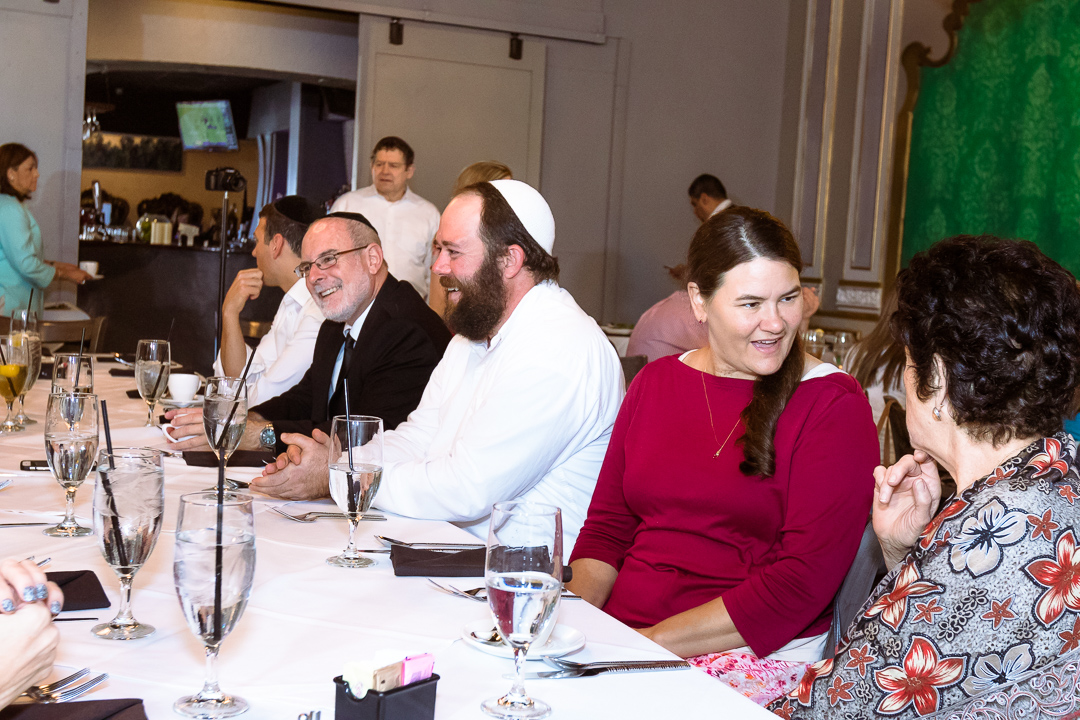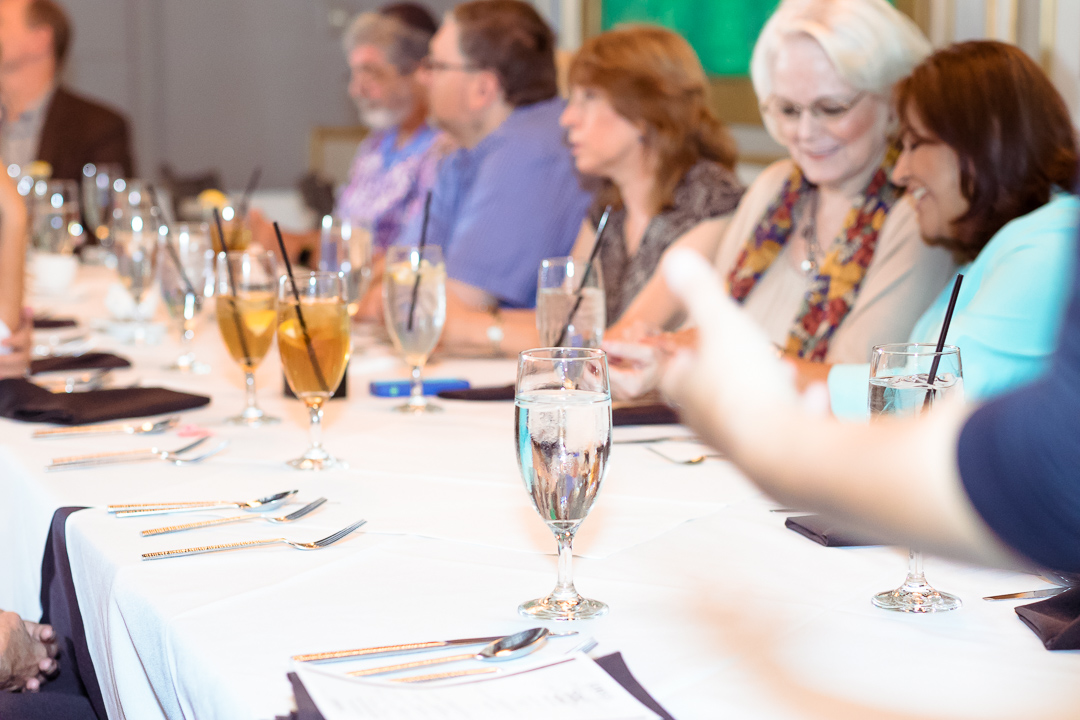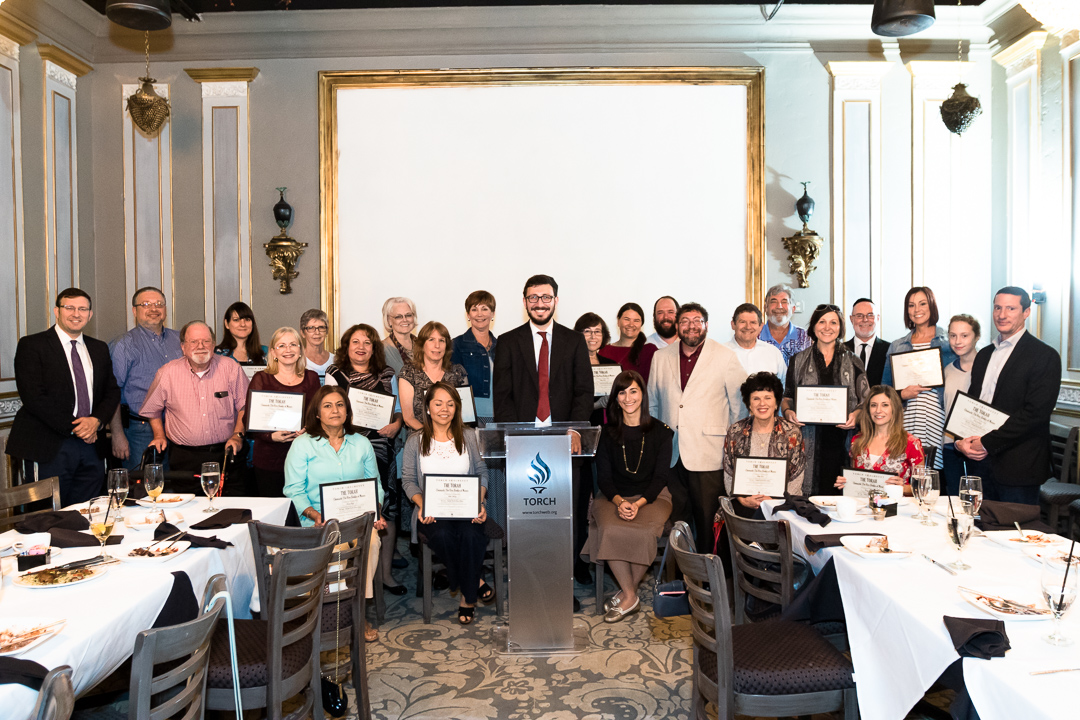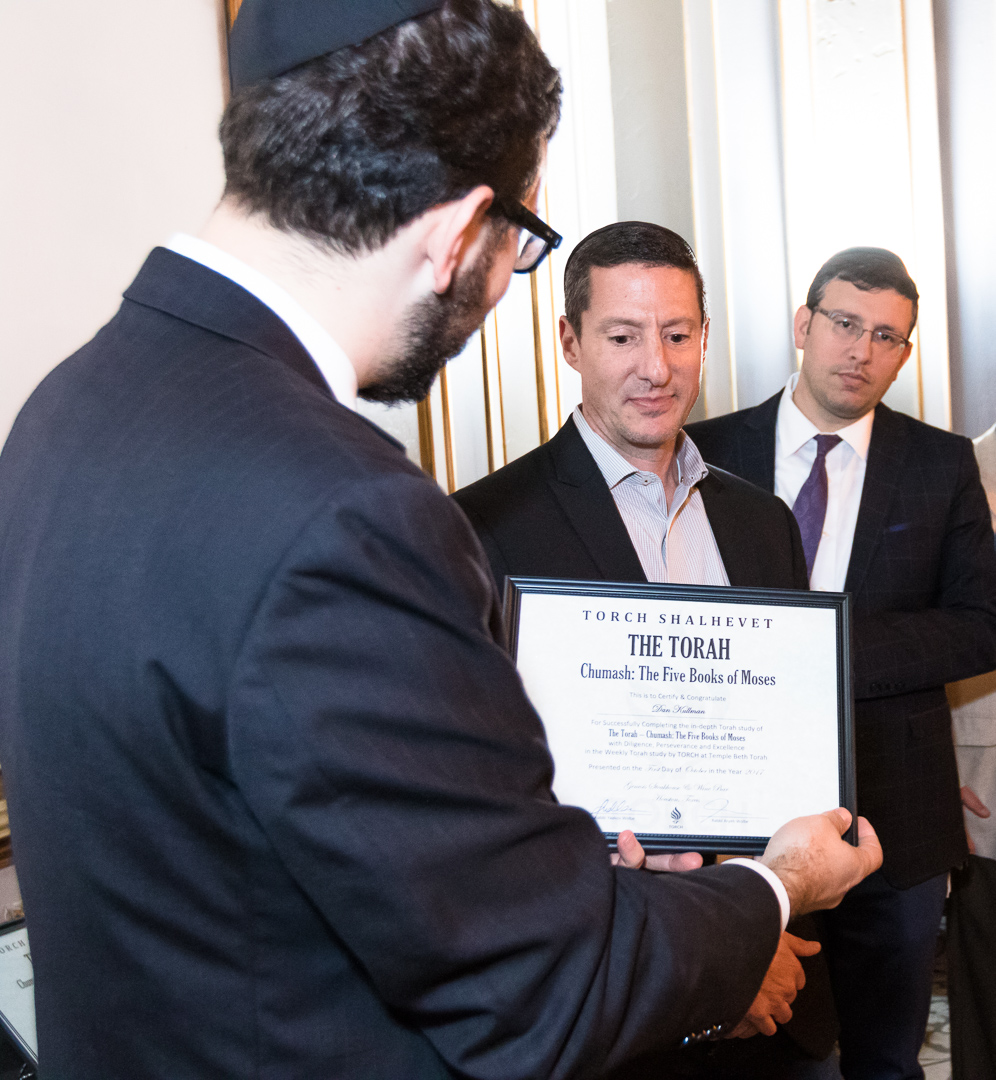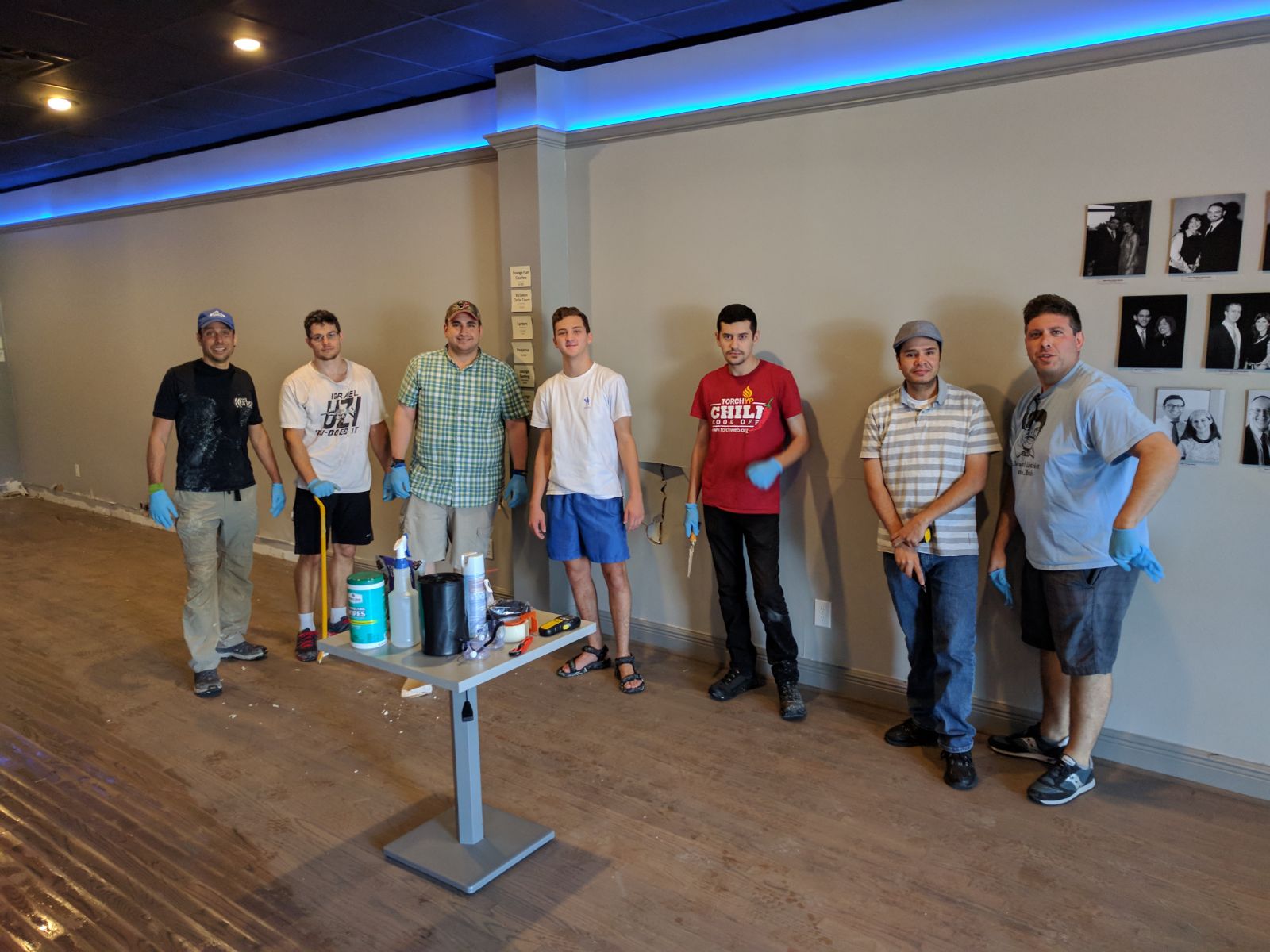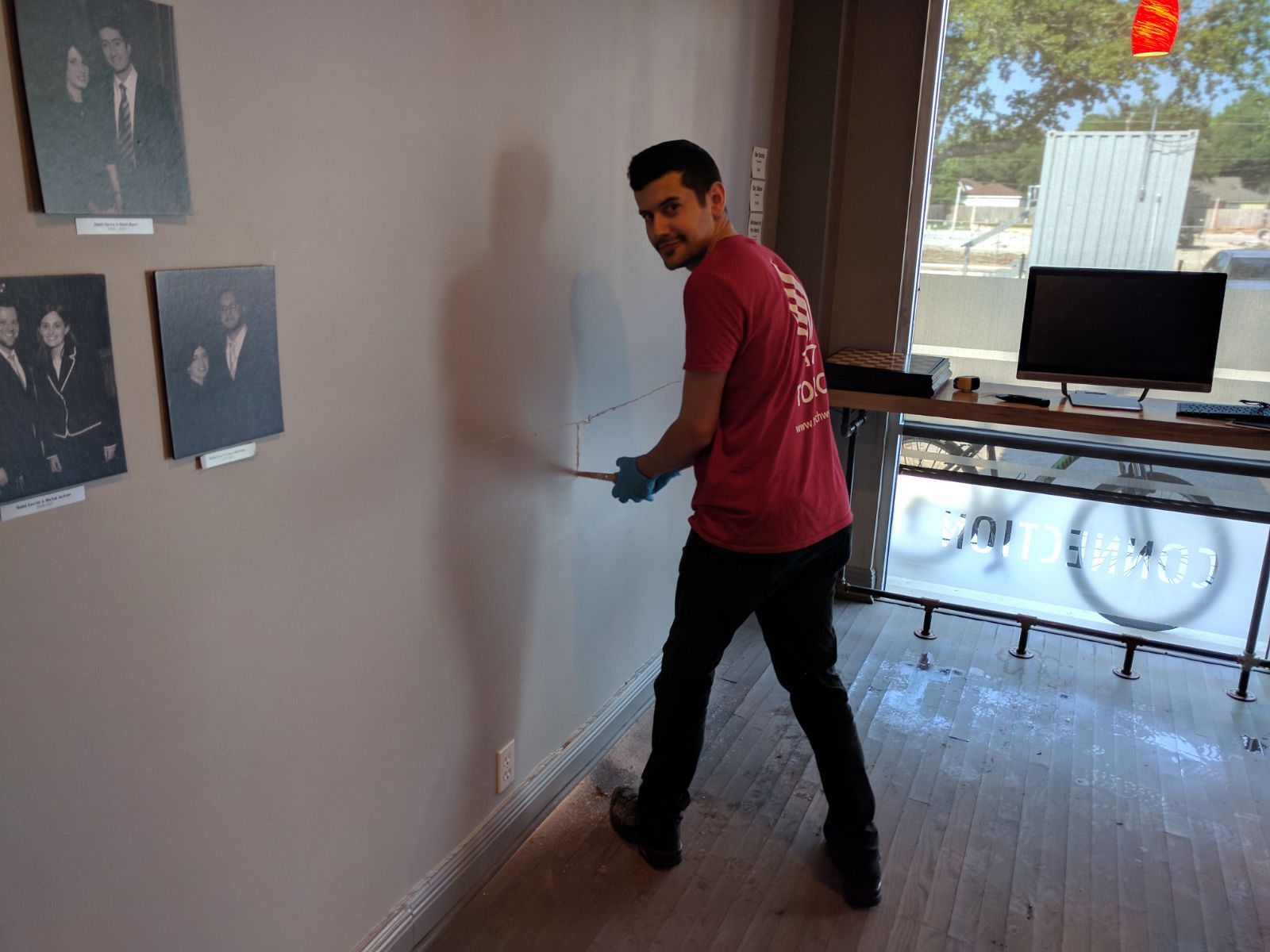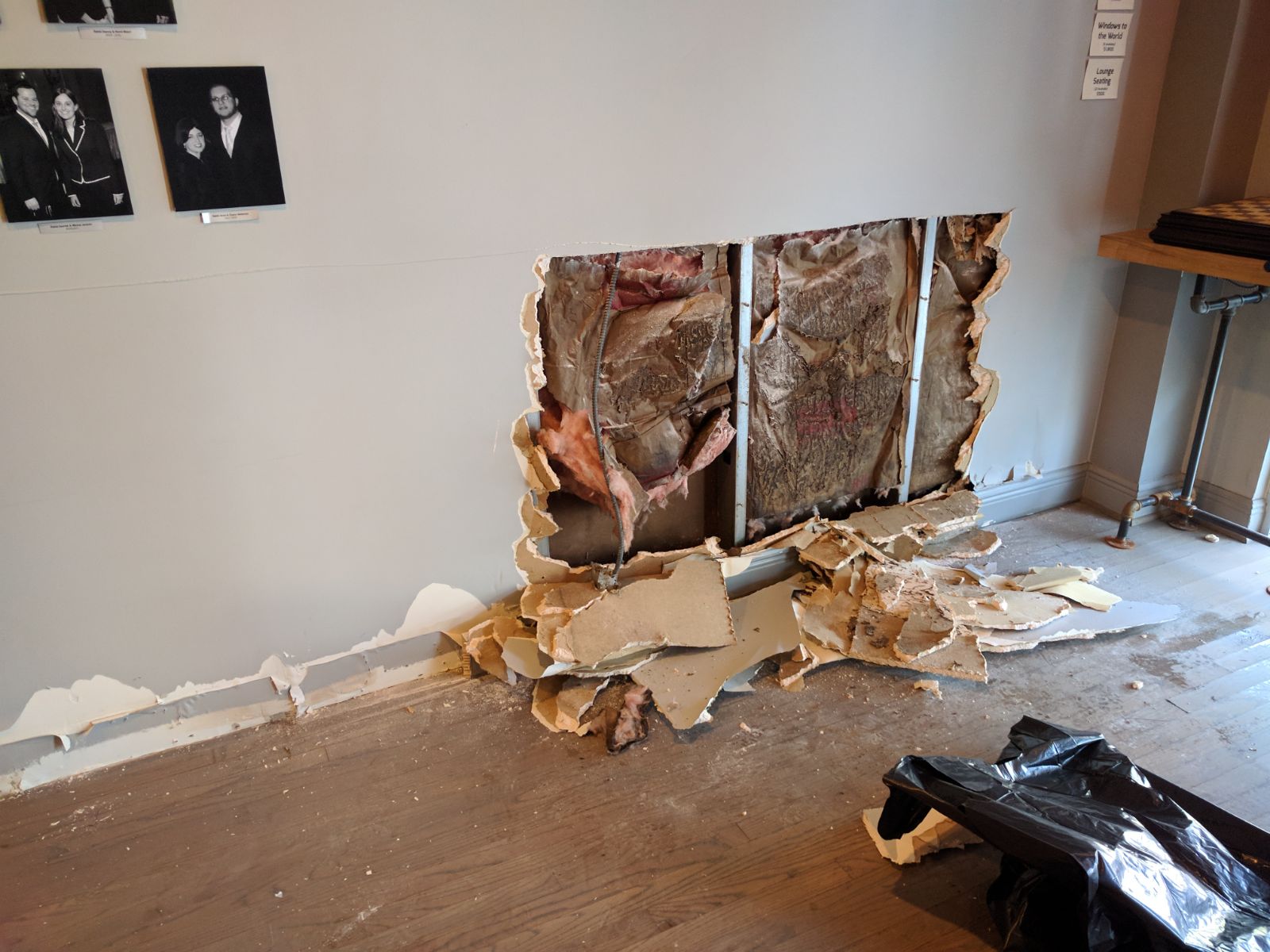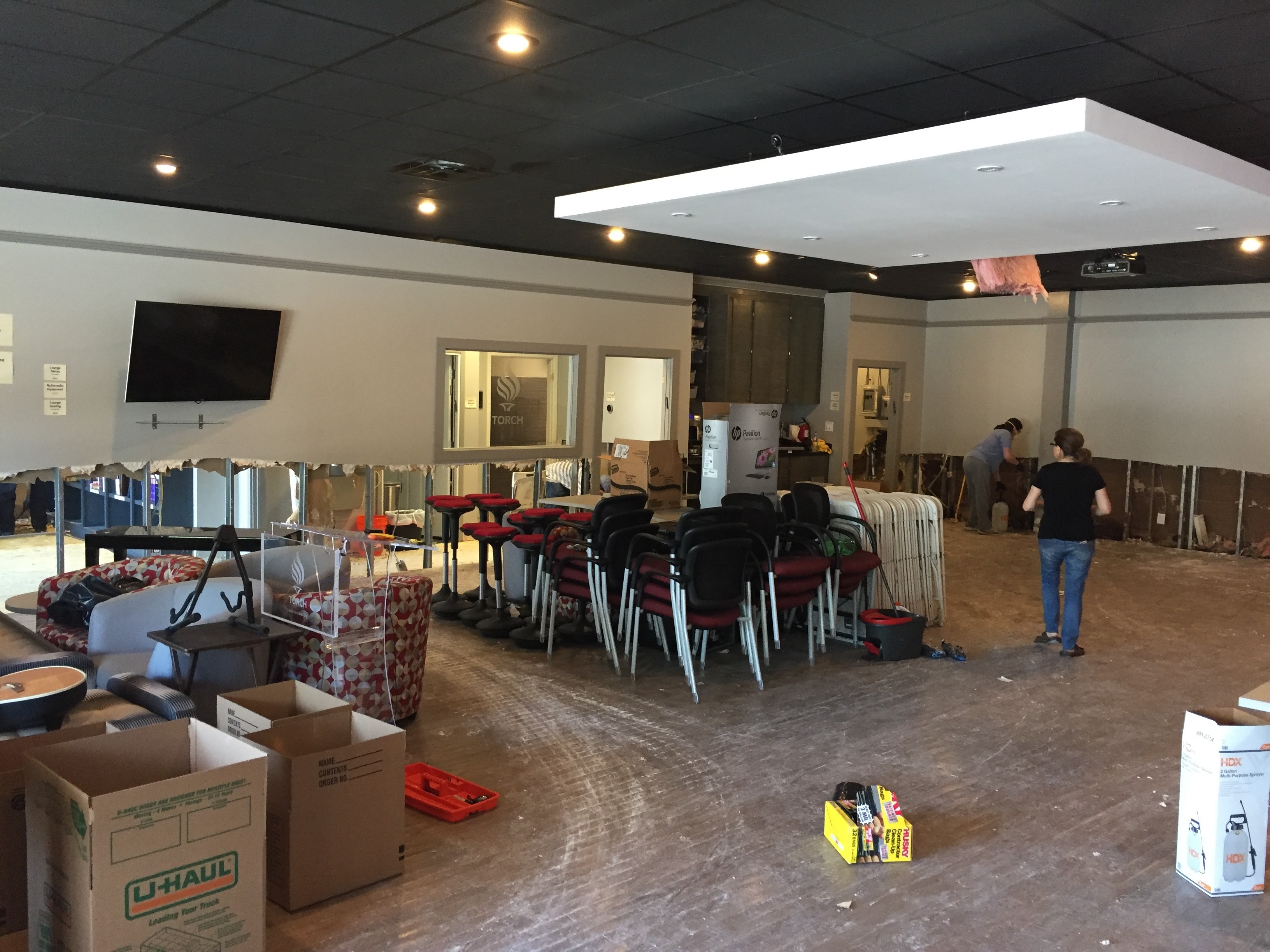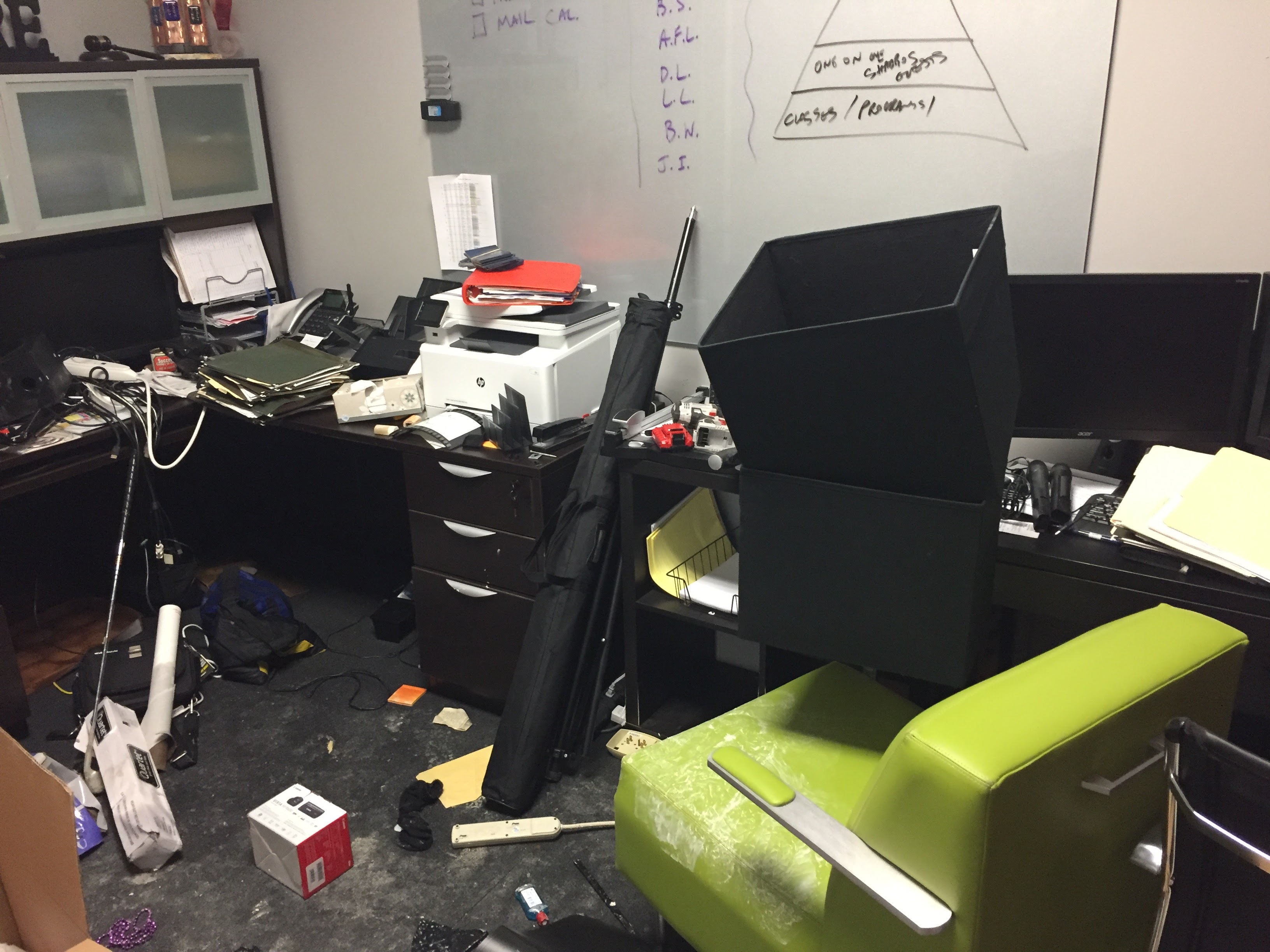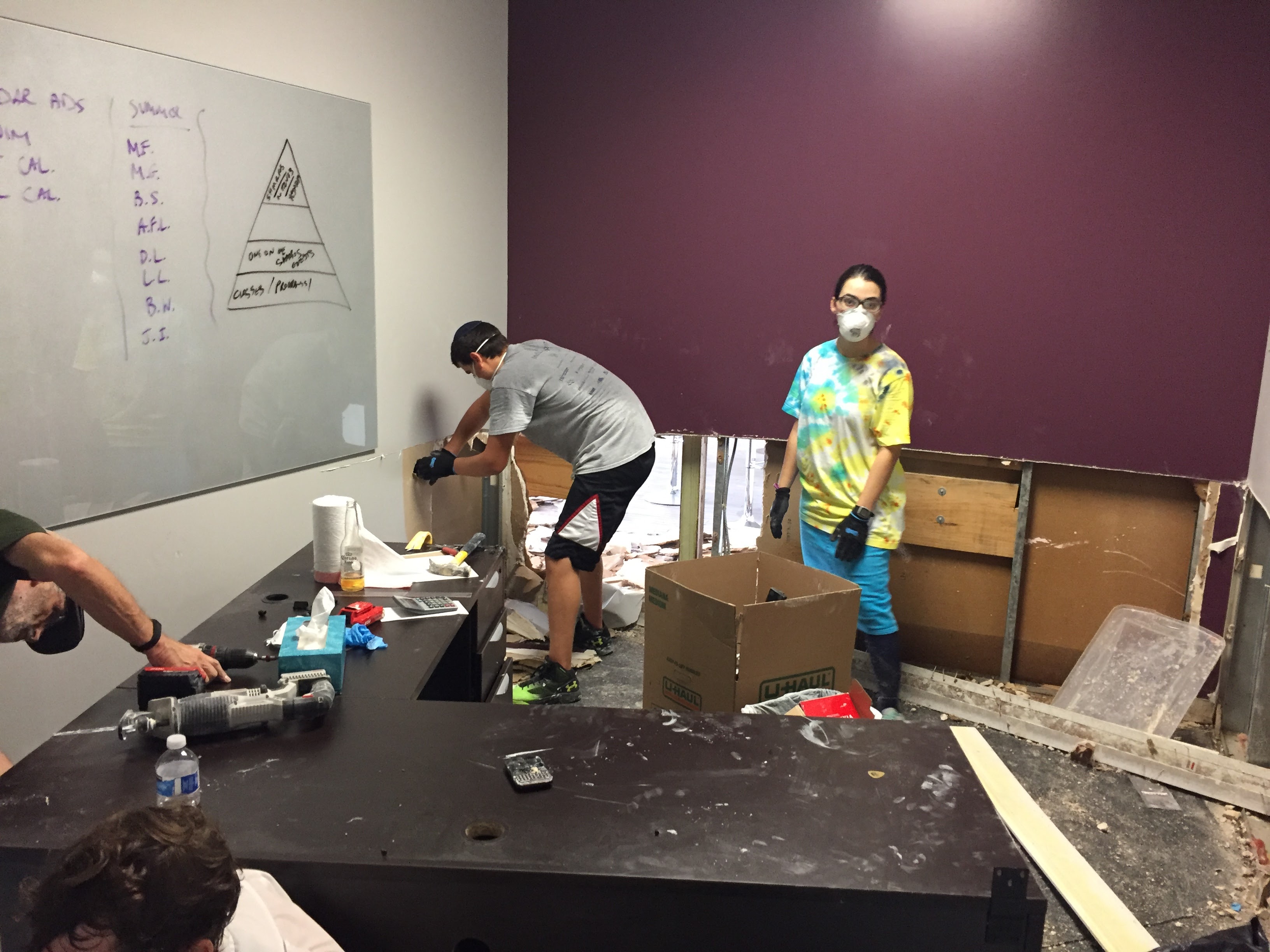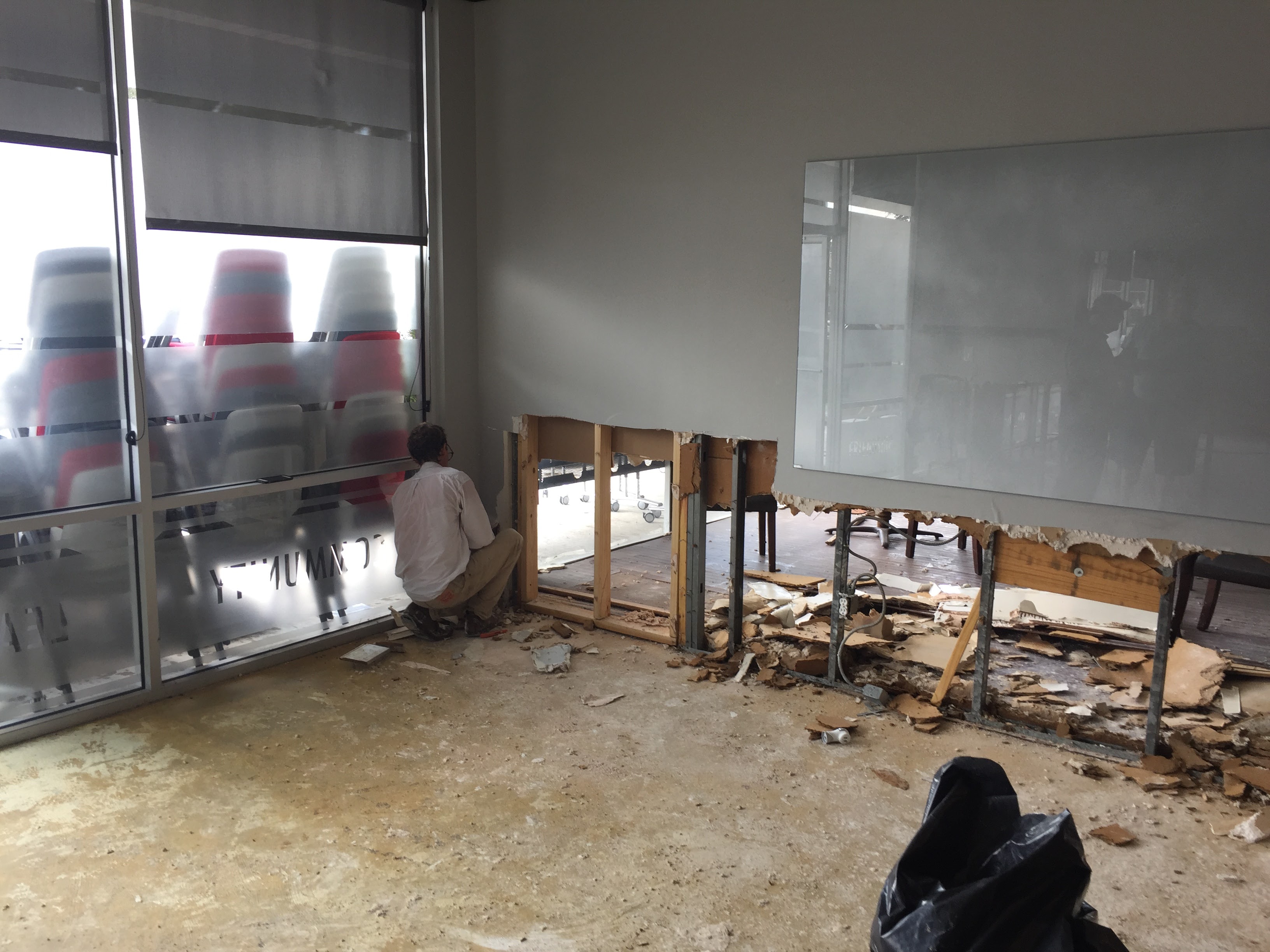The Talmud (Bava Basra 10a, see Maharsha Mahadura Basra) notes that Scripture describes the relationship between the Jews and God in two very different manners: On one hand we are described as children (Devarim 14:1): “You are sons to Hashem your God.” Alternatively, we are called slaves (Vayikra 25:55): “For to Me are the sons of Israel slaves.” The harsh relationship between master and slave is different than the warm one existing between parent and child. Which one is it? The Talmud determines: “When the Jewish people are doing the will of the Almighty then He treats us as children; when we are ignoring His will then we suffer the consequences of a recalcitrant slave.” We determine how God treats us. The more committed we are to upholding His will the more He treats us as a loving parent. Every successive level of Emunah that we scale garners us more tangible and material benefits befitting a child of the Infinite Creator and Master of all. Let us examine how this works.
The Talmud (Brachos 35b) attempts to reconcile two seemingly contradicting verses. We read in the Shema (Devarim 11:14) “And you shall gather your grain”, which implies that Jews are farmers; yet elsewhere (Joshua 1:8) it says: “The book of Torah shall never depart from your mouth”, indicating that ideally Torah study should never cease for anything, farming included. The Talmud presents two opposing reconciliations: Rabbi Yishmael harmonizes these two verses by saying that the verse instructing to never stop Torah study is not to be understood literally, rather a person should blend making a living (“and you shall gather your grain”) together with their Torah study. A different approach: “Rabbi Shimon Bar Yochai says: If a person plows during plowing season, plants during planting season, harvests during the harvest season, grinds during grinding season, and winnows during the windy season, what will become of the Torah? Rather, when Israel is doing the will of the Almighty then their work is done by others as it says (Isaiah 61:5): “And foreigners will arise and tend to your sheep”. And when Israel is not doing the will of the Almighty then their work is done by themselves as it says “And you shall gather your grain”; what’s more the work of others is also done by them as it says (Devarim 28:48): “And you shall be enslaved to your enemy”.” Rabbi Shimon understands the verse telling the Jews to never abandon the study of Torah as literal. Ideally, the Jews should only study Torah and not work at all. If they do so then they will be sustained by the work of others – when Israel is doing the will of the Almighty then their work is done by others. In the unfortunate instances when the Jews are not studying Torah full time, they will need to do their work themselves – “And you shall gather your grain”. Thus Rabbi Shimon learns the two opposing verses as referring to the two opposing statuses of the Jewish people.
The Talmud concludes: “Abaye said: Many behaved as Rabbi Yishmael [taught] and succeeded; [many behaved] as Rabbi Shimon [taught] and did not succeed.”
There are several matters in this Talmudic debate worth pondering, beginning with the opinion of Rabbi Yishmael. The words he uses to describe work are “derech eretz” (the way of the land). Why would he choose to utilize this euphemism? This oddity is particularly interesting given that the term derech eretz is found elsewhere in the sources in similar contexts, as we shall yet see.
The precise words of Rabbi Shimon may also reveal insight into his position. He argues that a person’s needs will be taken care of so long as they maintain exclusive immersion in Torah – when Israel is doing the will of the Almighty then their work is done by others. These very same words were in the Talmud cited above regarding when we are considered children and not slaves of God – if the Jews do the will of the Almighty then they are called sons. Seemingly, Rabbi Shimon qualifies non-stop Torah study as fulfilling God’s will. Thus if a person never stops studying Torah they are doing the Almighty’s will and are thereby treated as His child. A perk that God extends to His children is that their work is done by others. However, if we neglect the will of God, i.e. we neglect Torah study, then we are demoted to being slaves and we have to do our own work and the work of others. We will attempt to develop this idea.
There are several elements of Rabbi Shimon’s position that require analysis: Firstly, he equates continual Torah study with doing the will of God, and therefore the key to be rendered His “son” with its associated benefits. Why does changing our relationship with God hinge specifically on Torah study? The content of Rabbi Shimon’s construct need to be understood. He teaches that if we do God’s will our work will be outsourced to others and if we reject the will of God then we will need to do our own work and the work of others as well. How and why does someone who is totally committed to God’s will and Torah study have all their material needs taken care of? Conversely, if a person does not do the will of God then the work of others will be foisted upon them in addition to their own. It is understandable for a person to lose the miraculous tending of their needs if they were to neglect God’s will, but why would this cause the work of others to be foisted upon them?
Abaye surveyed the landscape and concluded that many did like Rabbi Yishmael and succeeded and many used Rabbi Shimon’s approach and did not succeed. Successful fulfillment of Rabbi Yishmael is synthesis of Torah and work. What does Abaye mean by saying that many tried as Rabbi Shimon advocated and were unsuccessful? Were they unsuccessful in meriting to have their needs met by others or were they unsuccessful in their Torah pursuits as well? The methodology of Abaye’s resolution of the dispute also demands understanding. Rabbi Yishmael and Rabbi Shimon have a verse-based debate and Abaye’s solution is to examine the data to resolve it. This is not the typical method to adjudicate disagreements. Normally to resolve a dispute you would need to prove the truth of one of the options; what is the meaning behind the way Abaye mediated this one?
Rabbi Shimon’s notion that reliance on God is sufficient to address one’s physical and material needs extends to areas beyond a person’s livelihood. The Talmud (Brachos 60a) records the text of the prayer one should recite when undergoing a medical procedure: “Rav Acha said: Someone who begins to bloodlet says ‘May it be the will before You, Hashem my God, that this procedure be a healing for me so that You may heal me, for You are a trustworthy God and Your healing is true’. [Prayer is appropriate] because is not the normal way of man to seek medical help, only they so behaved. Abaye said: He should not say that, for they taught in the academy of rabbi Yishmael: [The verse says] ‘And he shall surely heal’, from here we know that a doctor has permission to administer medicine.” While earlier Rabbi Yishmael and Rabbi Shimon argued regarding the correct perspective pertaining to procurement of man’s material and financial needs, here we see a similar disagreement with respect to a person’s medical needs. Again Abaye and Rabbi Yishmael are on the more pragmatic side of the argument. They argue that the Torah gives the human physician license to practice medicine. Visiting a doctor is thus a perfectly optimal Torah-based decision. Rav Acha counters that ideally one shouldn’t even go to a human doctor. Therefore he promotes prayer and invoking of God even when visiting a human physician. The real Healer is God. In a perfect world human physicians would be redundant; the only reason why people go to the Dr. is because “they so behaved”. This last part is a little cryptic. What does that it’s inappropriate to go to a doctor and the only reason we go is because we behaved like that?
Ramban (Vayikra 26:11) explains: “As a general principle, when Israel is numerous and perfect, their matters will not be governed at all by nature, not in their bodies, not in their lands, not in their multitudes and not their individuals. Instead, Hashem will bless their breads and waters and will remove illness from among them resulting in them not needing medical care nor preventive medical care, as the verse states: ‘For I and Hashem your Healer”. This was the practice of the righteous during the reign of the prophets. When a sin would cause illness, they would not seek medical help rather they would ask the prophets… This is the meaning behind the Talmud’s statement: ‘it is not the normal way of man to seek medical help, only they so behaved”. Had they not sought medical care, people would only fall ill in proportion to the due punishment for their sins and he would be healed per the will of God; but they behaved with seeking medical care and Hashem allowed them to be subject to the happenings of nature”
Historically, during the period of the prophets, the Jewish people were supernatural. Their illnesses and healings were personally tended to by God. Illness was exclusively the result of spiritual maladies. Illness was God’s way of conveying to a person that they have sins that they need to rectify. Therefore when someone would fall ill they would seek the advice of a prophet to diagnose the causal sin. Once the source of the illness was discovered the patient would repair the underlying sin and the illness would be healed. God was their Healer. This is the way it would have remained had people not visited physicians. But people decided to consult physicians and everything changed. Visiting the doctor downgraded their faith and as a result they lost their supernatural status and from thenceforth they became subject to natural illnesses. Now that they sought medical care by natural means they actually need medical care by natural means. Thus says Rav Acha – “is not the normal way of man to seek medical help, only they so behaved” – we chose to downgrade our perspective on our health by attributing natural causes to illness and pursuing natural means of ameliorating them. By doing that we cut God out of our medical life and thereby lost the supernatural status we had prior. From then on we were actually subject to pathology not as a result of sin but as a force of nature that affects everyone, and therefore must seek natural means of healing too. Pursual of medical care in itself prompted the need for said medical care.
This insight that the pursual of medical care in itself prompted the need for medical care requires further explanation. The Mishnah (Sotah 48a) says: “When the Temple was destroyed…men of faith ceased”. Explains the Talmud (ibid 48b): What is men of faith? Said Rabbi Yitzchak: This is referring to people who believe in the Holy Ones, blessed is He, as it is written in a Braisa: Rabbi Elazar the great says: ‘He who has bread in his basket and says what will I eat tomorrow, behold he is from the men of limited faith’.” The litmus test for determining if someone has faith in God is someone who has food today but none for tomorrow, and is not worried about it. If the lack of food for the next day causes anxiety then there is a lack of faith. Truthfully, this level ceased with the destruction of the Temple.
Let’s go back to a time when people of that degree of faith still existed. A man of faith who doesn’t have bread for tomorrow isn’t worried. He trusts God. What would happen tomorrow? Would God summon food to miraculously appear? Also, Midrash (Toras Kohanim Emor) tells us that if someone relies upon a miracle, miracles don’t happen for them. So if a person doesn’t have food for the next day and is unconcerned at all about it and is not relying on a miracle how is that not negligence? What is the meaning behind this perspective?
We’ve seen that the Almighty loves us as a human father loves his child. Furthermore, God has unlimited money and resources. Suppose you are the adored child of a billionaire. One evening you inspect the cupboards and they’re empty. There is no food for tomorrow. Are you going to worry for a second that you’ll be hungry and there won’t be any breakfast? After all, Daddy is a billionaire and he take care of you! For someone whose belief in God truly permeates their reality they are even more secure in tomorrow’s breakfast than the son of the human billionaire. Certainly they will not fret over it. They legitimately view themselves as children of a Billionaire and are doubtless that their needs will be duly met. Because they upgrade their emunah God responds in kind and upgrades His treatment and indeed He will provide food for the next day. This is not to be confused as reliance on a miracle. A parent providing breakfast for their children is hardly miraculous! A miracle that doesn’t happen is one that interferes with our free will. Truthfully, miracles happen every second. Since you began reading this essay your heart beated perhaps several hundred times without any conscious action on your part. That’s an allowable miracle because we’re used to it and it doesn’t tamper with our reality and thereby our free will. This is what is known as a hidden miracle; it’s no less miraculous but it is common and therefore hidden. God feeding His children is the same as God prompting a person’s heart to pump for someone who actually views God as being their Billionaire Dad in their reality. For them, relying on God for breakfast is no different than relying on God for all the other hidden miracles that happen non stop. Neither is reliance on God in this context negligence. Is it negligence for a perfectly healthy person to not walk around with a portable emergency oxygen tank in case they just stop breathing? It is not negligent to rely on reality. A man of perfect faith lives with the reality that God loves them, is Omnipotent and tends to them as a parent. This is real to them and is reflected in their behavior. They won’t be surprised at all when God indeed delivers them their needs.
The only reason why our Almighty Dad doesn’t “miraculously” feed us and tend to our needs in this manner is because we downgraded our emunah. We no longer viewed God as really being capable or really loving us. Instead, we have sleepless nights agonizing over how we are going to feed our family, we favor the financial advisor over God. Medically too. We visit the physician in place of seeking to determine why God caused us illness. We failed to have faith on that lofty level. If we don’t see God as our benevolent Father and our most capable Healer then we change the way He treats us. He will no longer behave as a Billionaire Dad and provide; in fact, to rely on it would constitute reliance on a miracle and amount to negligence!
Let’s circle back to the position of Rabbi Shimon: God wants us to never stop studying torah – “The book of Torah shall never depart from your mouth”. How will you feed your family? Well, He’s a billionaire. He will take care of you. Rabbi Shimon had the titanic faith of the pre Temple destruction era. People who had food for today would not be concerned in the least regarding tomorrow; confident in the fact that their Billionaire Dad would provide. Thus, he advised to just study Torah and “when Israel is doing the will of the Almighty then their work is done by others”; so long as a person is treating God as a loving Father, God responds congruently by treating them as His children.
Rabbi Yishmael disagreed and said that a person needs to be concerned with providing for their family. What is their disagreement based upon? Rabbi Yishmael agreed to the principle of Rabbi Shimon. Certainly, if a person would have the pre-destruction levels of faith then they needn’t worry about working for a living. But after the Temple was destroyed, that level was lost. People believed, but without the same conviction. Therefore if they don’t have food for tomorrow they would scramble to find food. They did not view God as their Billionaire Dad and therefore He ceased treating them as children too. Ignoring the pressing need to find sustenance would be artificial faith and amount to negligent reliance on a miracle. They would not be legitimately convinced that the Almighty will provide; they would toss and turn fitfully that night. For them, actual food in the cupboard is more comforting than the notion of God providing. Their faith in physical food exceeded their faith in God. As such, these people must work to feed their families. Rabbi Yishmael agrees to the principle that if people would theoretically recapture that idyllic level of faith their needs would be addressed and taken care of by God. However, he is aware that in the post-destruction era men of that level of faith is are a dying breed and therefore the practical approach must be to combine work alongside Torah study.
Hence, Rabbi Shimon and Rabbi Yishmael are both correct. Their two positions are sound counsel for two different people. For someone who has that high level of faith they ought to rely on God as Rabbi Shimon advises. Those whose faith is of the post-destruction variety ought to follow Rabbi Yishmael’s guidance and live within the parameters of the world, derech eretz.
Abaye resolves this dispute: “Many behaved as Rabbi Yishmael [taught] and succeeded; [many behaved] as Rabbi Shimon [taught] and did not succeed.” Abaye is not adjudicating a disagreement because both opinions are correct depending on the level of faith of the individual in question. Abaye surveyed the data and found that many people tried to live as if they had really attained the faith of Rabbi Shimon and were unsuccessful. Their failure was not an indictment of Rabbi Shimon’s position rather it was reflective of the impartial faith of those individuals. Their behavior overshot their emunah reality. Many people tried to do like Rabbi Yishmael and it worked out. Abaye is not deterring us from selecting Rabbi Shimon’s approach provided that we truly are holding at that level of faith. He is cautioning us because he saw many who believed that they were at that level of faith and tried to rely on God and it was revealed that they weren’t actually there and it did not work out.
This principle applies with regards to medical care too. If we all had the faith of Rabbi Shimon we would realize that all illness is from God and we could ignore the doctor. But we do not have that level of faith and turn to the doctor instead of God. Therefore we lose the special treatment of the most skilled Healer and also get sick due to natural causes and need to seek medical care.
The underlying principle that emerges is that we determine the sort of relationship we have with the Almighty and He treats us in that same manner. Let us probe a bit deeper into the mechanics of this construct. The Mishnah (Avos 3:5) teaches: “Rabbi Nechunya Ben Hakannah said: ‘Whoever accepts upon himself the yoke of Torah, they remove from upon him the yoke of the kingdom (malchus) and the yoke of the way of the world (derech eretz); and whoever removes the yoke of Torah from himself, the yokes of kingdom and the way of the world are placed upon him’.” A yoke is a crosspiece used to attach two animals to a single plow. This mishnah uses this term in relation to man and reveals that there are three potential yokes that a person can be subjugated to: Torah, kingdom and derech eretz. The person himself chooses which yoke he is subjugated to by making the binary choice of accepting or removing the yoke of Torah. What is this notion of a human yoke, what are the differences between these three yokes, are what are the implications of a transformation from one yoke to another?
The mishnah teaches a revolutionary insight. Every person has a yoke, a priority that is fixed and immutable. The imagery of a device designed for animals is no coincidence. The yoke on the animal assures its obedience irrespective of the particular interest of the animal right now. The mishnah reveals that we also have aspects of our lives that we uphold as a matter of duty. Many people dislike their jobs yet persistently show up day after day because to quit is not an option. They value their salary and benefits too much and have no choice but to come to work whether or not they are in the mood. That is a yoke.
As an example, the verse advises men to accept the yoke while they are young. The Midrash teaches that this yoke refers to marriage. By defining marriage as acceptance of a yoke we learn that its core characteristic is commitment irrespective of mood swings. Approaching marriage as commitment of the spouses to the union come what may ensures harmony and prevents mood-induced bouts of instability.
The yoke of Torah refers to a total and complete commitment to Torah study. It is the literal interpretation of the verse “The book of Torah shall never depart from your mouth”. If a person accepts the yoke of Torah then the other two yokes – of kingdom and derech eretz – are removed from him. What are these two yokes? The term derech eretz has already appeared in a source above: Rabbi Yishmael had argued that a person must combine working for a living, described as derech eretz, with Torah study. Derech eretz refers to the laws of nature. Nature dictates that if you don’t plant, plow and harvest, you’ll starve. However, if a person accepts upon themselves the yoke of Torah then the yoke of derech eretz, the inflexible principle mandating that a person work, is removed. Rabbi Shimon invokes the idea of this mishnah: If a person never stops studying, i.e. they accept the yoke of Torah, then they will no longer be subject to the realm of derech eretz and their work will be provided for them.
What about the yoke of kingdom? Maharal, in his derech Hachaim on this mishnah, explains that this refers to the dominion of free will of others – as in a government using police power – to affect a person. Typically, a person is subject to the free will of others – a king can imprison him, a thief can rob with the use of a deadly weapon. Others can choose to encroach upon his life. However, if a person voluntarily accepts the yoke of Torah, then this too is removed. They will no longer be subject to being negatively affected by the free will of others.
This explains the latter half of Rabbi Shimon’s teachings: “When Israel is not doing the will of the Almighty then their work is done by themselves as it says “And you shall gather your grain”; what’s more the work of others is also done by them.” We had previously pondered why would abandoning of the will of Hashem causes the work of others to be thrust upon a person. Now we know. Unless someone is protected by the shield of the yoke of Torah, they are exposed to the possibility of another person’s free will compelling them.
This perspective on the transformation of the righteous is echoed by the Chinuch in his commentary on the mitzvah (#546) mandating the placement of a fence around one’s roof to prevent any unfortunate accidents. He explains that the Almighty established the ground rules for the world known as nature. Nature dictates that fire combusts and water extinguishes fire; and that a person who falls off a high roof will die. In his words: “God subjected the body of man to nature.” Therefore the Torah instructs that we must take preventative measures to protect ourselves. If we do not surround our roof with a fence we allow for the possibility that someone may fall and die due to their subjugation to the forces of nature. The Chinuch continues: “However, there will be a select few that due to their piety and cleaving to the Almighty’s ways the King desires them. These are the great righteous from yesteryear, men of renown like our great and holy forefathers, and many of their descendants who came afterwards like Daniel, Chananyah, Mishael and Azariah and the like, to whom He subjected nature to them. In their beginning they too we’re subjected to nature, but at their ends, due to the greatness of the ascension of their soul, it was reversed and they became masters over nature. As we know, with Abraham our forefather who was cast into a fiery furnace and was not injured, and the four pious ones that we mentioned who were thrown into a fire and their hair was not singed. However, as a result of sin, the majority of people do not merit this great level, and therefore the Torah commands us to guard our dwellings and places to prevent negligent death, and we ought not endanger our lives by relying on miracles. Additionally the Sages taught “whoever relays on a miracle; miracles do not happen to him.” You will find this perspective in many verses, for also when the Jews engage in a righteous war as per the directive of Hashem, they would prepare for battle and arm themselves, and do all that was needed as if they were completely in the hands of nature, and so it is fit to do as per the concepts that we mentioned. He who does not reject the truth out of the evil of his heart will admit to this.”
The Chinuch describes a way that a person can die prematurely: As a result of a natural accident like falling off the roof or being burned in a fire. By default, man is subject to nature. Our mishnah would call this the yoke of derech eretz. But there is a class of people who are not subject to nature, rather nature is subject to them. They are therefore only tended to by God and they would not die because of random natural causes. As a rule of nature, fire combusts; but the rules of nature do not apply to the righteous such as Abraham and he was unaffected when thrown into the fiery furnace. The yoke of derech eretz was removed from him.
Implicit in the Chinuch’s teachings is that the yoke of kingdom – the nefarious free will of others – can also cause an untimely death. After all, there were human perpetrators who threw Abraham and the four others into the fire. In an instance where one person casts another into a fire it would be preposterous to suggest that the fire is the murderer. Surely the perpetrator is the guilty one. And the Chinuch writes that if not for Abraham’s righteousness he would have died. Thus the yoke of kingdom can undermine a person’s life unless they have accepted the yoke of Torah and are no longer subjected to the dominion of others.
The principle that a person’s very life is subject to the free will of others is also found in the episode regarding Joseph visiting his brothers in the fields. Initially they considered killing him outright; ultimately they decided to throw him into a pit. What was their deliberation? Explains the Ohr Hachaim: A murder victim is not necessarily deserving of death. It is within the realm of the murderer’s free will to end the life of the victim, regardless of their innocence or guilt. The brothers were mostly convinced that Joseph had transgressed an executable offense and was deserving of death. Clearly they did not believe that he was righteous to the degree that would allow for the removal of the yoke of kingdom. Thus, had the brothers actively killed Joseph, his death would not be evidence of his guilt; maybe he was truly innocent yet their free will would be sufficient to kill him nonetheless.
A person is subject to the laws of nature, also known as derech eretz: they need to work to make a living, if they fall of a roof they may die; and to the adverse free will of others, also known as malchus: others can injure or kill them, others can force them to work for them. It is possible to access a higher realm when we are treated directly by God, as a loving father would, and not affected at all by these other realms. To reach this level one would need to fulfill the Almighty’s will, defined as never departing the study of Torah, in the words of the mishna: accepting the yoke of Torah.
Let us probe a bit deeper into this subject. Adam and Eve sinned with consumption of the fruit of the tree of knowledge of good and evil and were consequently punished. Adam was told that he would have to sweat to eat, there would be thorns that would hinder his agricultural efforts, and the land will be cursed. Eve’s punishment consisted primarily of increased suffering in pregnancy and childbirth. How does the punishment fit the crime? My grandfather explained that the sin was a decision to allow the Yetzer Ra to infiltrate into their being. Prior to the sin they had no internal motivators to evil and the notion of nature as a distinct entity outside of God was nonexistent. As a result of the sin they knew good and evil – both became internal motivators. With the introduction of the Yetzer Ra – described in the Talmud (Shabbos 105b) as a foreign god – barriers were erected between man and his Creator and the notion of ignoring and rejecting God became viable. Adam and Eve allowed a contrary and opposing view that obviates the need for acceptance of God to seep into their world. As a result God informs them that agriculture and childrearing will now be increasingly difficult. This is a direct consequence of the sin. Before the sin it was completely clear that God was the only Power: babies were born seamlessly and painlessly; vegetation sprouted forth effortlessly. Under those conditions rejection of God is infeasible. The Yetzer Ra creates a reality where rejection of God is made possible. A person plows, plants, plucks out weeds, and sweats his way to harvest and becomes convinced that he made these fruits. God is forgotten from this equation. The harder a person works to achieve an end the more they are convinced that it is their strength and might of hand that created that result. Similarly, the pain and anguish of childrearing and length of pregnancy obscure what would otherwise be an undeniable miracle of God. Thus, a byproduct of the capacity to reject God is the newfound difficulty in perceiving Him. What’s more, the punishments are specifically in the two areas where we can still potentially perceive God’s creation ex nihilo. An inedible seed cast into inedible soil resulting in a new fruit tree bearing edible fruits that also contain seeds for future planting is a miracle that would undoubtedly preclude us from rejection of God. Bearing children is likewise creation ex nihilo. Therefore specifically in these areas the consequences of the existence of the Yetzer Ra are strongest.
The Talmud (Kiddushin 82a) notes that you never see animals with vocations. Animals all survive despite not working for a living. Only humans need to work to make a living. The truth is that the natural state of man is that he too need not work. The difficulty required to make a living is only the product of the Yetzer Ra. Suppose someone neutralizes the effect of their Yetzer Ra. They would thereby remove the raison d’être of the problems of making a living and restore it to the way it was initially before the primordial sin. This is the underpinning of our thesis. By accepting the yoke of Torah and studying it without cessation we counteract the Yetzer Ra. “Torah is the antidote for the Yetzer Ra” (Kiddushin 30b). By doing that we restore the matter to the way it was initially intended. We will once again ensconce God as the only Power in our lives, supplanting the foreign god of the Yetzer Ra. By doing His will, God will treat us as a loving father and personally tend to all our needs.
Before we quit our jobs and enlist in full time Torah scholarship we must remember the caveat of Abaye: Many tried to do as Rabbi Shimon and it did not work out for them. The Torah recognized that most people are not free of the dominion of nature and commanded us to build a fence around our roof. The mishnah (Avos 3:17) cautions us from adopting Rabbi Shimon’s approach: “If there is no derech eretz there is no Torah” – if we ignore the way of the world we will not succeed. The mishnah further states: ”If there is no flour there is no Torah.” Why does the mishnah says if there is no flour; if there is no bread is more appropriate? The Maharal explains that if it said that someone needs bread in order to study that would indicate that even if there is no flour for tomorrow’s bread he can successfully study Torah. The mishnah is teaching that in order for someone to study properly they would need bread for today and flour for tomorrow’s bread. Before the Temple was destroyed there were people of sufficient faith to not worry about tomorrow’s bread. Indeed, for those people God would provide. For us the rule is that we need flour as well or there is no Torah. We had better not deceive ourselves into behaving like Rabbi Shimon because we many tried and were unsuccessful, i.e. they were unsuccessful even in their Torah pursuits!
The pre-destruction levels of emunah embodied by Rabbi Shimon are beyond us. The reality that those people lived with was that God would take care of their needs as a loving father, and God treated them in that manner. Our faith is not complete and therefore we need flour to be able to attain Torah. Perhaps the highest obtainable faith is for someone who has bread today and flour for tomorrow to rely on God for the next day. Some may need ten years worth of provisions to have the peace of mind to study Torah. Every person still chooses where along that spectrum they fall. We all need some measure of “flour security” due to our imperfect faith; we will struggle to be at ease without a rainy day fund. How vast that security buffer needs to be depends on how real our faith is. Hopefully we will strive to upgrade our emunah and thereby merit to a parallel upgrade in God’s treatment.


